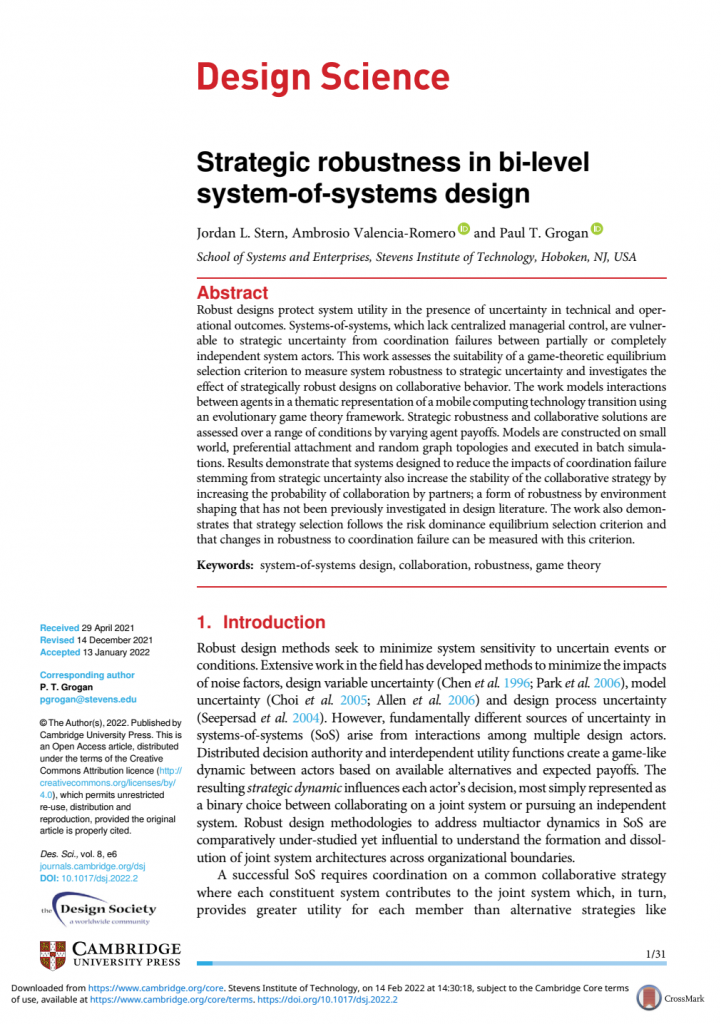A new research article authored by Jordan Stern, Ambrosio Valencia-Romero, and Paul Grogan appears in Design Science as an open access manuscript today.
Strategic robustness in bi-level system-of-systems design
Robust designs protect system utility in the presence of uncertainty in technical and operational outcomes. Systems-of-systems, which lack centralized managerial control, are vulnerable to strategic uncertainty from coordination failures between partially or completely independent system actors. This work assesses the suitability of a game-theoretic equilibrium selection criterion to measure system robustness to strategic uncertainty and investigates the effect of strategically robust designs on collaborative behavior. The work models interactions between agents in a thematic representation of a mobile computing technology transition using an evolutionary game theory framework. Strategic robustness and collaborative solutions are assessed over a range of conditions by varying agent payoffs. Models are constructed on small world, preferential attachment and random graph topologies and executed in batch simulations. Results demonstrate that systems designed to reduce the impacts of coordination failure stemming from strategic uncertainty also increase the stability of the collaborative strategy by increasing the probability of collaboration by partners; a form of robustness by environment shaping that has not been previously investigated in design literature. The work also demonstrates that strategy selection follows the risk dominance equilibrium selection criterion and that changes in robustness to coordination failure can be measured with this criterion.

